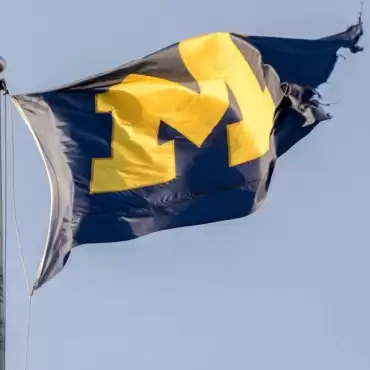As jurisdictions around the US wrestle with athlete harassment and how to handle the college-player prop bet ban the NCAA is pushing, on Thursday (11 July) the Wyoming Gaming Commission (WGC) decided to table the issue.
Under the leadership of the former Massachusetts governor, Charlie Baker, in March the NCAA began a campaign to ban prop bets involving college athletes nationwide.
As of now, 13 US states explicitly ban prop bets on college players. Lawmakers or regulators in Maryland, Ohio and Vermont banned them after the campaign began.
Arizona, Colorado, Louisiana, Massachusetts, Oregon, New York, Pennsylvania, Tennessee, Virginia and West Virginia already had bans of some sort before the NCAA request.
In Illinois, Iowa, and Rhode Island, government officials chose to prohibit college-player props on in-state schools only. Indiana does not allow player props of any kind. So far, only Montana has said no to the NCAA, although other states besides Wyoming continue to mull the idea.
A North Carolina bill that would have banned college-player props died in committee when the session ended in late June.
Will banning player props curb harassment?
Thursday’s meeting was a window into the issue. Commissioners said they were perplexed. There does not appear to be a clear right or wrong answer to the issue. The argument, some said, for banning college player props is compelling. But on the flip side, the argument that banning such bets doesn’t eliminate player harassment is also compelling. And then there is the black market. Operators have long argued that if a market is not offered in a legal setting, then bettors will go offshore.
“With the prop ban, you remove a tool from the legal market that could be used to root out other issues like harassment,” Scott Ward, a lobbyist on behalf of the Sports Betting Alliance (SBA), told the commission. He argued a ban “does not affect the illegal market”.
The SBA is a US wagering lobbying coalition comprised of BetMGM, DraftKings, Fanatics and FanDuel.
A look at bans in other states
Prior to Thursday’s meeting, WGC operations manager Michael Steinberg prepared a paper on banning college-player prop bets. It outlined two kinds of bans in place. The “Ohio Solution”, used by other states as well, is an outright ban on college props for in-state and out-of-state colleges. The “Iowa Solution”, also used by other states, is a ban on college prop bets on in-state college athletes only.
But at the end, Steinberg wrote, “We all agree that harassment of student athletes is bad and something that should not be tolerated. The question then becomes, is banning prop bets going to eliminate the harassment of athletes?”
Steinberg wrote that WGC staff met with the NCAA prior to a May meeting on the subject. They asked for data “showing a drop in harassment of athletes in states such as Ohio who banned prop betting. The NCAA was not able to provide any numbers showing whether or not the ban in Ohio reduced athlete harassment.”
Steinberg also noted that WGC staff met with officials from the University of Wyoming. In that meeting, he wrote, Wyoming officials shared multiple “shocking” and “vile” stories of athlete harassment, but “didn’t seem to be connected to betting”.
Ward argued that keeping the bets legal means that legal operators are “incentivised to do something about it. But if we take away the tools, then we don’t have any way to monitor this activity.”
Dealing with harassment is the core issue
So far, Ohio and West Virginia are the only states to have created rules to punish those who harass athletes. In those states, anyone caught harassing college and professional athletes will be banned from betting on the legal market.
Ward said that operators do have policies in place to deal with bettors who harass athletes.
What was clear on Thursday is that Wyoming commissioners believe the key is harassment. But how that ties into a ban on college-player props remains fuzzy. And, as commission president Troy Broussard said, they want to be careful not to “conflate the two issues”.
He went on to say that harassment of any athlete is a negative. But he does not yet see a clear connection to college-player prop bets.
Let’s “wait to see how it all shakes out”
One commissioner indicated that it would be possible to “promulgate a rule” to deal with harassment independent of a college player-prop ban. Commissioners also expressed concern about the idea that if they do a make a rule around harassment or banning college-player props, that any rule would remain in a bubble.
“If you allow it one state, it doesn’t stop things in other states,” commissioner Reuben Ritthaler said.
As the WGC continues to educate itself, Ritthaler may have summed up the temperature in the room best.
“I think we should wait to see how it all shakes out” nationally, he said.





